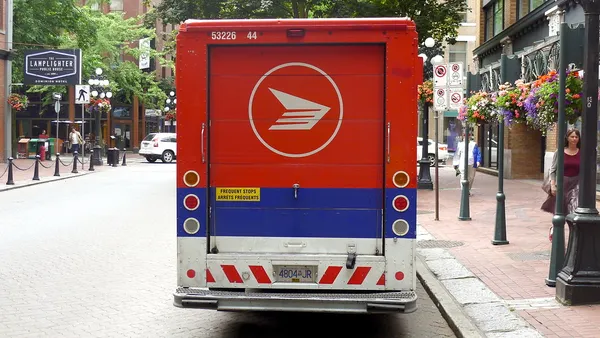Dive Brief:
- Congressman Bill Shuster, R-Pa., released a plan last month to revive the Highway Trust Fund (HTF), charged with rebuilding America's highways and bridges to the House Transportation and Infrastructure Committee, of which he is chair.
- The draft plan, which Shuster admits is in no way final, suggests a fee-per-mile scheme and corresponding pilot program stating, "a number of surface transportation system users do not currently pay into the system, even though they benefit from it." It also proposes increasing fuel taxes and removing full and partial exemptions around public and alternative forms of transport.
- It is unclear when the act will be finalized or come to a vote, and the November midterm elections could greatly affect its future.
Dive Insight:
Shuster has vowed to focus his remaining time in Congress on infrastructure since he announced his retirement from Congress at the end of this year.
"The House controlled by the GOP, the Congress, and the White House have to deal with this funding issue," said Shuster to a group of reporters after a Monday speech, as reported by Bloomberg.
The Highway Trust Fund is expected to run short of needed funds by 2020, according to the Congressional Budget Office, potentially forcing the delay or cancellation of critical infrastructure improvements. The fund has historically been sustained with revenue from the gas tax, but that rate hasn't been raised since 1993, leaving the fund terminally short of revenue.
Shuster has proposed new revenue sources with an emphasis on increasing fuel taxes across the board, including alternative fuels, indexed to inflation and set to run out in 2028. He proposes a $0.15/per gallon hike on gasoline and $0.20/gallon on diesel.
Existing fee breaks for public transportation are rescinded in the plan, though the reduced fee for school buses remains intact. A $0.043/gallon tax on diesel for passenger trains is also reinstated. Smaller commuter groups are newly on the hook in the plan, which includes a 10% fee for electric car batteries, bicycle tires, and "adult bicycles."
The per-mile user fee pilot proposed in the plan is a volunteer-based experiment that would eventually replace current fees on gasoline and diesel — currently the main sources of income for the HTF. Pay-per-mile schemes are coming into fashion around the country as electric and more fuel efficient vehicles threaten fuel tax revenue. A consumer pilot for per-mile fees is in process in multiple states along the I-95 corridor to study implementation possibilities and a trucking pilot will follow later this year, according to WTOP.
Industry groups like the Chamber of Commerce and the Business Roundtable offered statements of support for the plan, while the American Bus Association balked at the proposed end of the fuel tax partial exemption for buses.
The proposal also includes establishing a 15-member Highway Trust Fund Commission to conduct a study on the U.S. highway system.
President Trump has previously expressed support for a fuel tax hike in the service of infrastructure — throwing out a $0.25/gallon hike, which is above Shuster's proposal of $0.15, according to The Hill.














